Power move
Texas jet service lines up 300+ electric-hybrid planes for takeoff to small U.S. cities
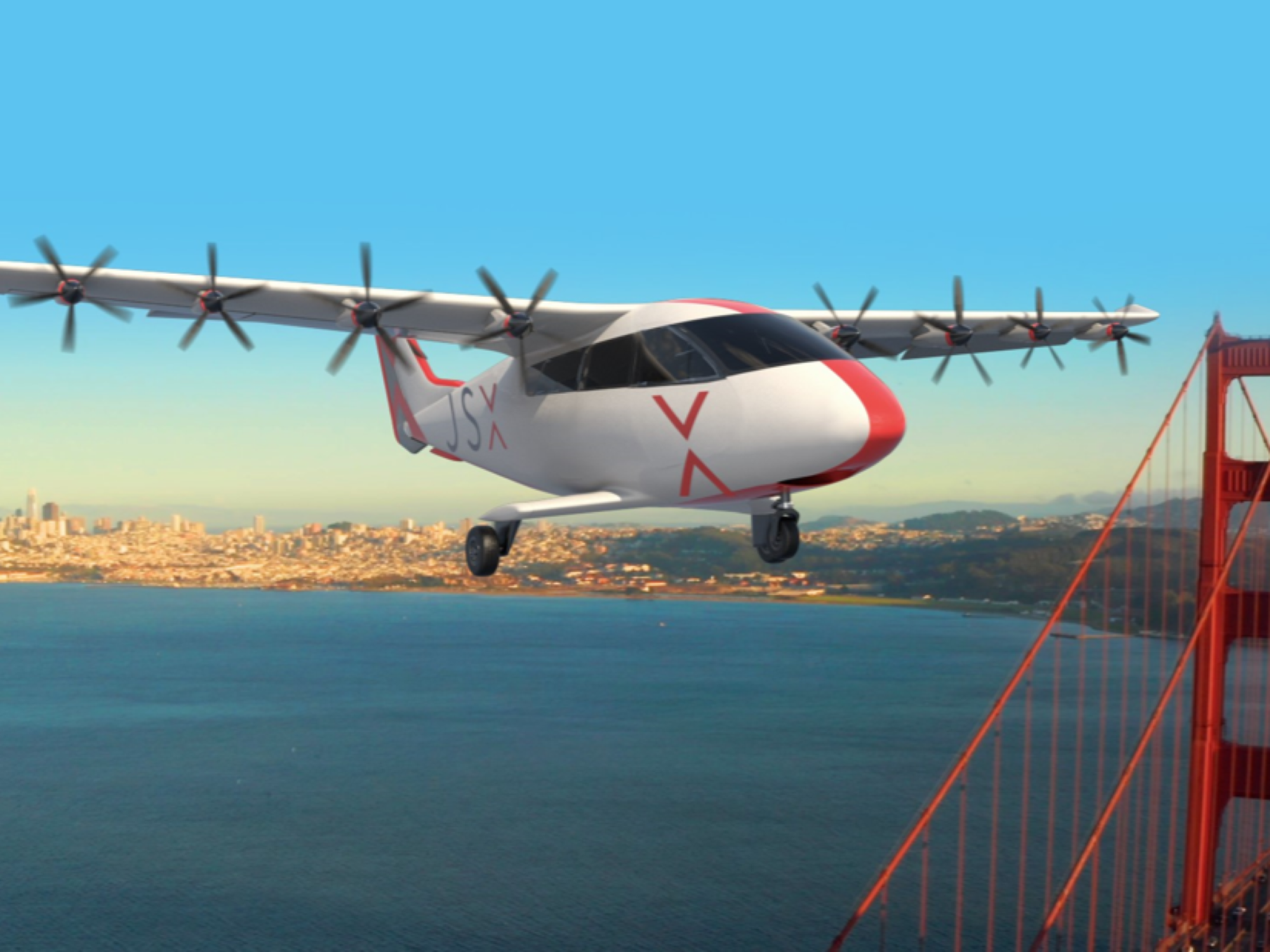
Behold the JSX electric-hybrid Electra eSTOL 9-seat aircraft.
Hop-on jet service JSX is soaring into a more eco-friendly future with plans to acquire more than 300 hybrid-electric airplanes.
The Dallas-based air carrier revealed in a release that they'll add up to 332 small hybrid planes in 2028, allowing them to connect to smaller, underserved communities around the country.
"Following the Biden Administration’s call last week for the aviation industry to cut carbon emissions ... JSX expects to take delivery of its first hybrid-electric aircraft in 2028, shepherding the next chapter of regional aviation as the first in its category to adopt this impactful cutting-edge renewable energy technology," JSX says in the release. "While commercial airlines can serve just 480 airports in the United States, JSX’s small community-friendly Part 135 and Part 380 Public Charter operations, combined with the exceptional performance capabilities of these hybrid-electric airplanes, enables service opportunities to thousands of federally funded airports otherwise inaccessible to people who can’t own or charter an entire aircraft."
The new cutting-edge airplanes will come from manufacturers Electra, Aura Aero, and Heart Aerospace and will include:
- up to 82 Electra eSTOL 9-seat aircraft (32 firm orders and 50 options)
- up to 150 Aura Aero Era 19-seat planes (50 firm orders and 100 options)
- up to 100 Heart Aerospace ES-30 30-seat planes (50 firm orders and 50 options)
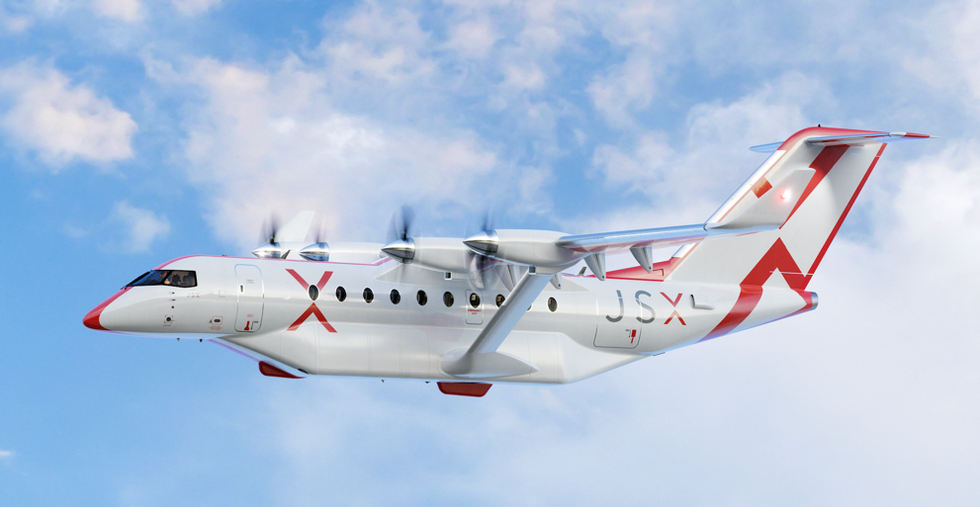
JSX currently operates about 50 semi-private planes configured with 30 seats, from private terminals in major cities including Austin (Austin Executive Airport), Dallas (Love Field), and Houston (Hobby Airport), and in "leisure" markets such as Destin, Florida and the Bahamas. The company recently shifted part of its operational focus to small markets (such as Midland-Odessa).
Interestingly, Austin's only direct connection is with Taos, New Mexico; From there, Austinites can move on toward Dallas, Burbank, or Carlsbad. The possibilities open up from Dallas, although driving there first may defeat the point of hybrid air travel.
JSX promises a "no crowds, no lines, and no fuss" travel experience, allowing customers to check in and "hop on" just 20 minutes before departure. The carrier recently came under fire from federal regulators and major commercial airlines for its looser security regulations that more closely resemble those of charter providers than those of domestic airlines.
JSX is now doubling down on its pledge to service underserved cities, declaring in the release, "JSX has mastered the trifecta of marketing, selling, and operating attainable by-the-seat public charter air service to numerous small communities that have no other regular air service."
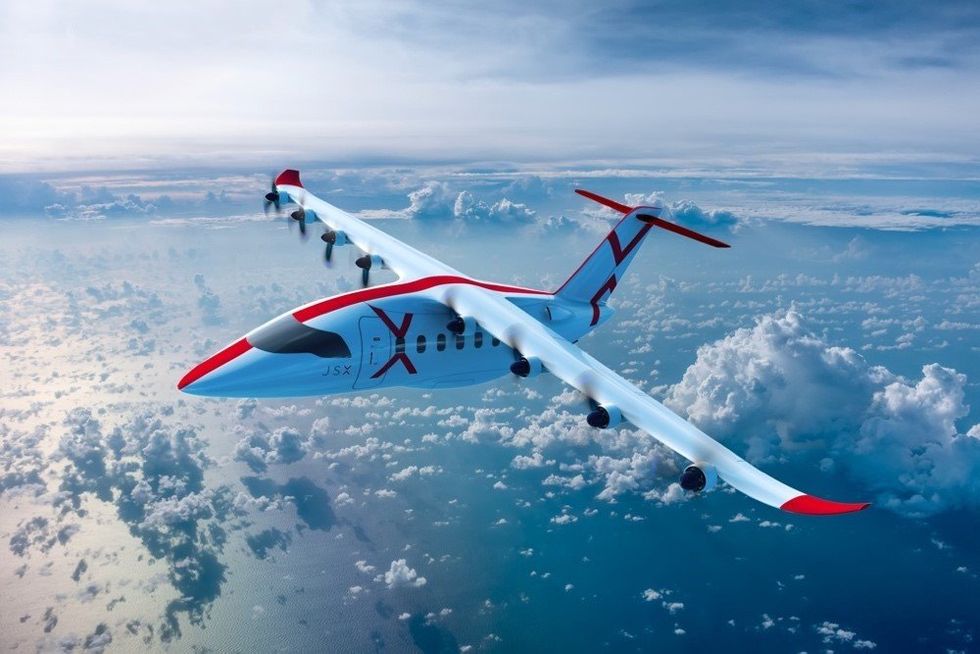
The new smaller, electric-hybrid aircraft will allow JSX to "dramatically lower the cost of its service and open new flight options at over 2,000 U.S. airports," they say, "stimulating local economies and empowering regional mobility and connectivity for communities devoid of regular air service today."
They point specifically to Del Rio, Texas, which has lost all commercial air service since the pandemic, they say, as an example of a small city that now can be reconnected to major cities in a cost-effective, sustainable way.
"The favorable operating economics of the Aura Aero Era, Heart ES-30, and Electra eSTOL can create thousands of new and expanded air travel options across the United States without the need for government subsidy," the company says.
In a statement, JSX CEO and cofounder Alex Wilcox adds, "As the network airlines order ever-larger aircraft it is inevitable that more and more small markets will be abandoned. Electra, Aura Aero, and Heart Aerospace are visionary organizations that share in JSX’s commitment to serving smaller communities, working together with us to weave sustainable regional air travel back into the fabric of American commerce and freedom of movement.”
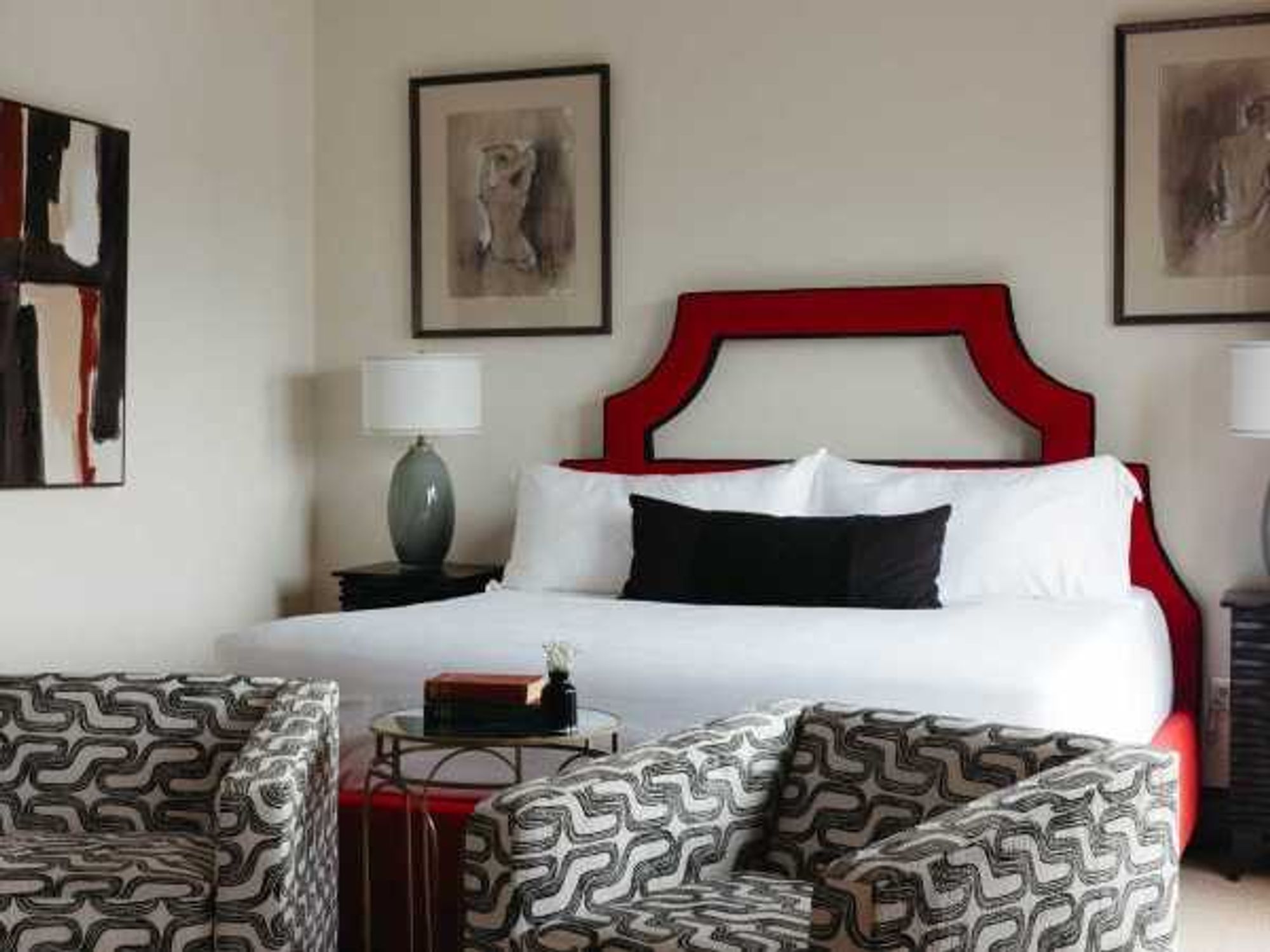



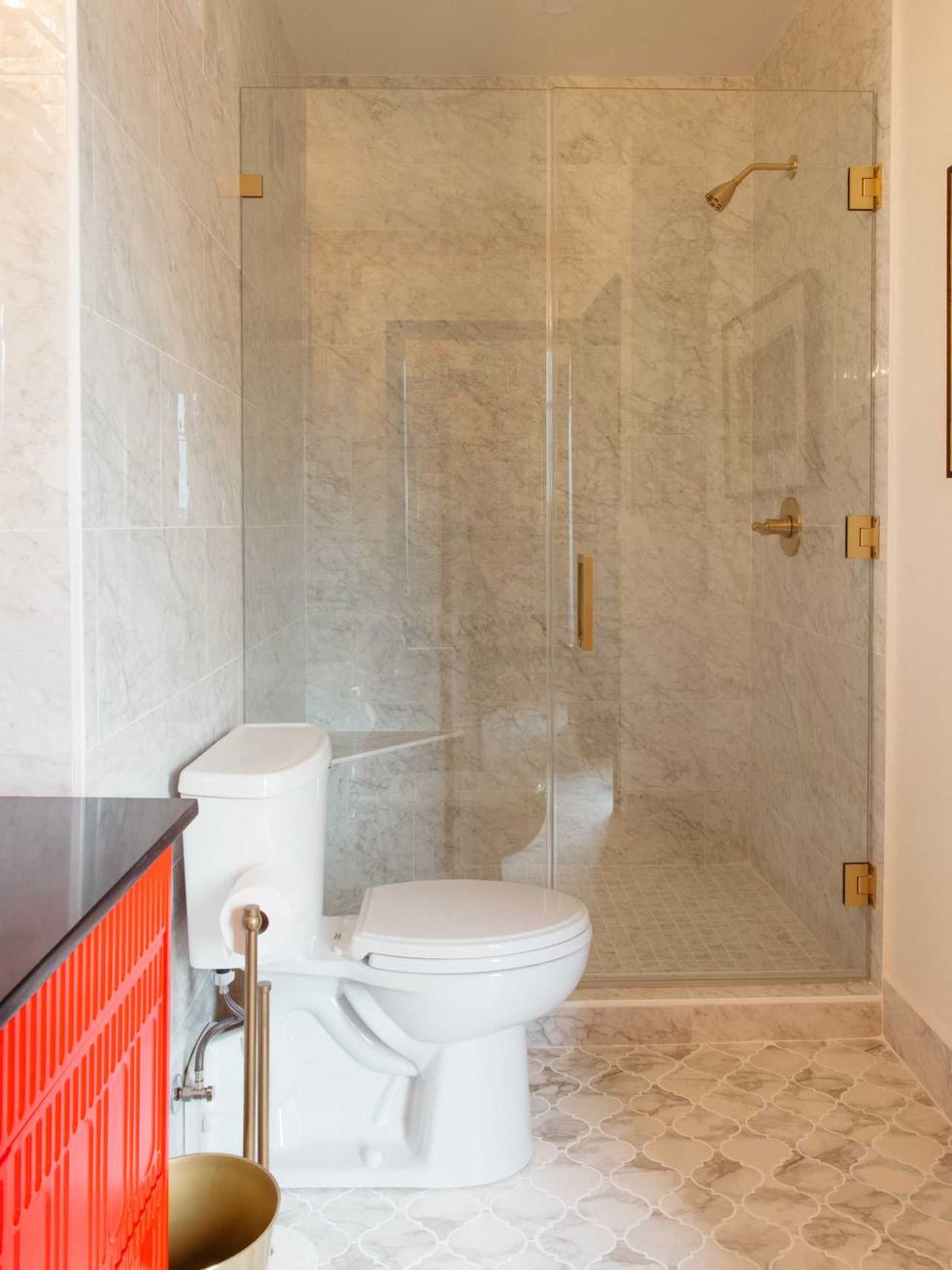
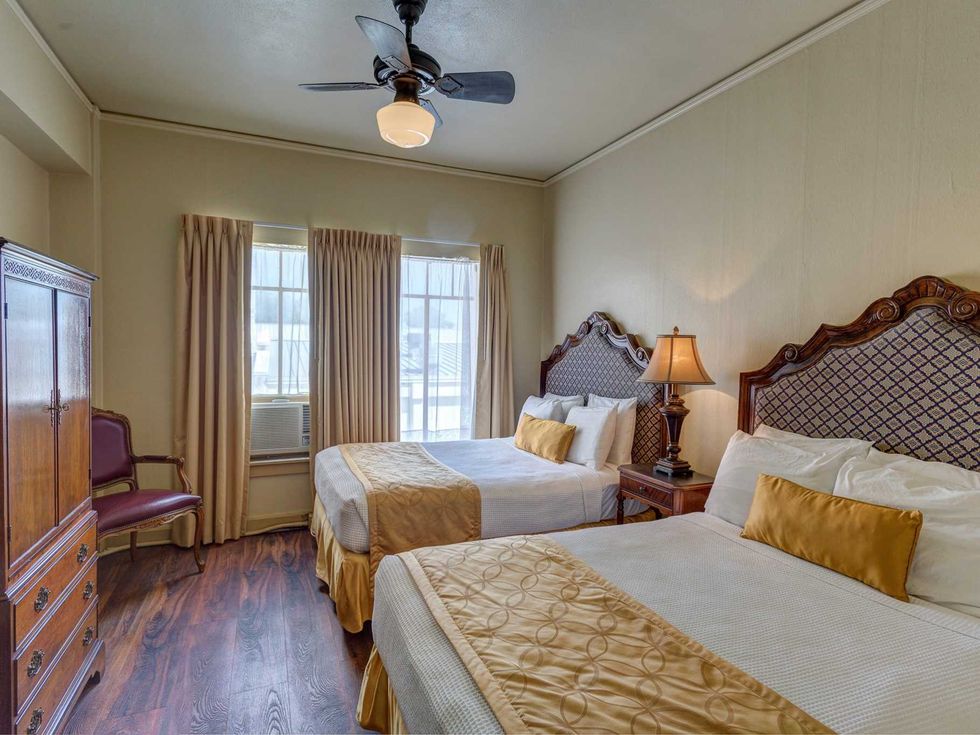
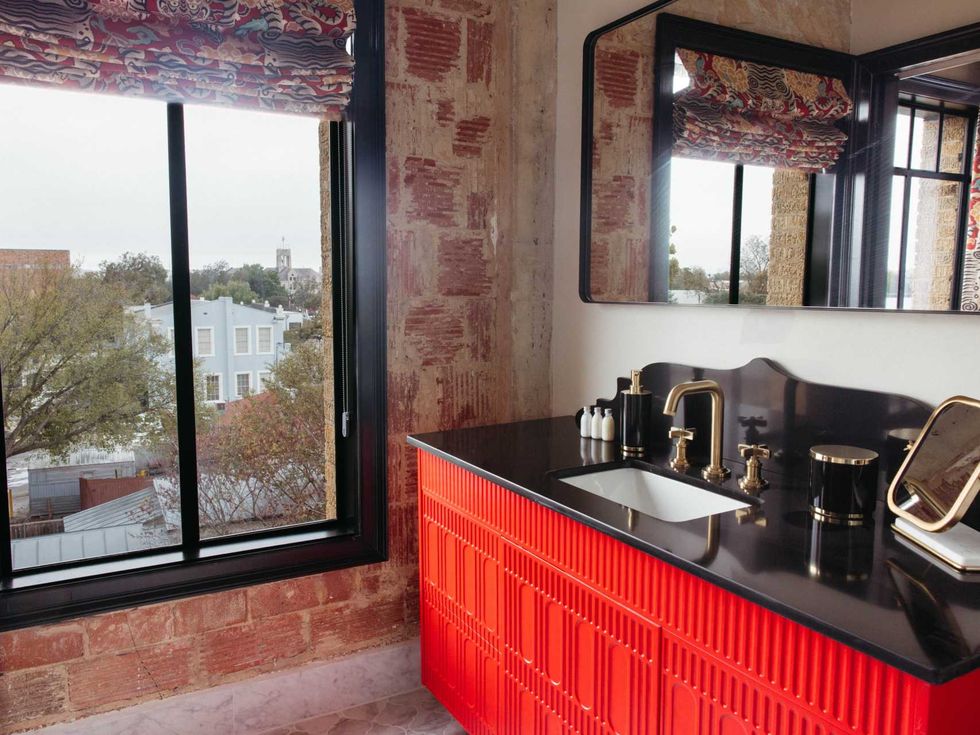 The bathroom's color scheme is a subtle nod to 1920s Art Deco.Photo by Garrett Smith/Giant Noise Partners
The bathroom's color scheme is a subtle nod to 1920s Art Deco.Photo by Garrett Smith/Giant Noise Partners